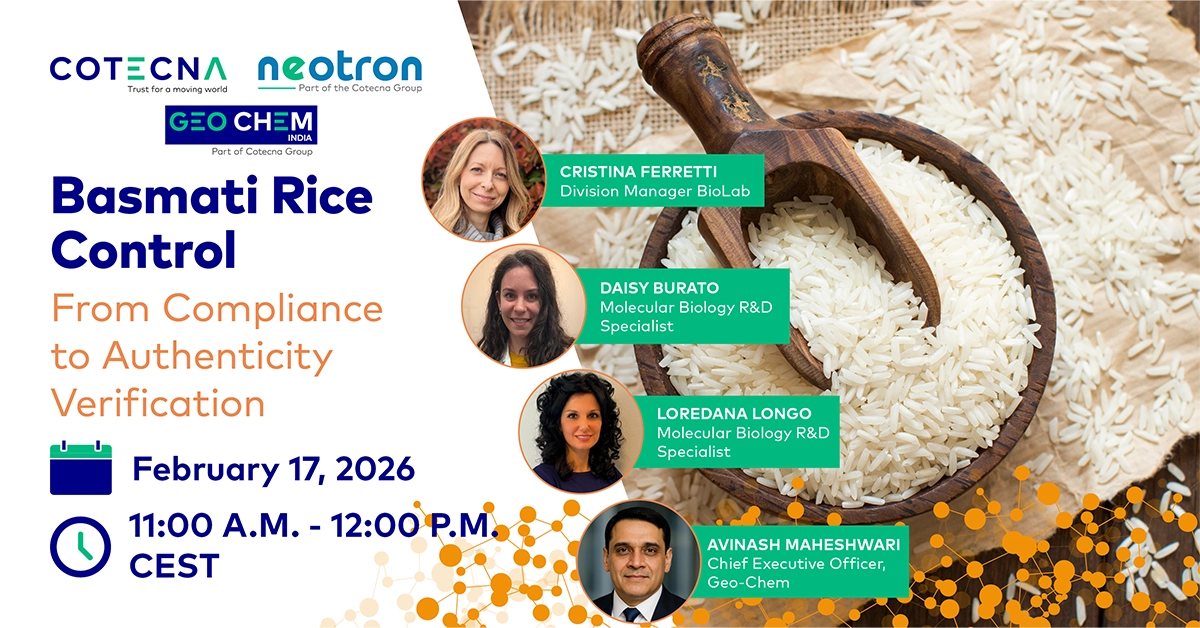Tags
In a blow to India, EU adds Sindh to basmati-growing areas, allowing Pakistan to ship it to Poland
The development is seen affecting New Delhi’s claim for GI tag as the Pakistan region is not in the original notified areas where the fragrant rice is grown.
By Subramani Ra Mancombu

The European Union (EU) seems to be favouring Pakistan in the latter’s dispute against India for the basmati rice geographical indication (GI) tag, going by two recent developments. These developments are detrimental to the interests of the Indian basmati rice industry.
According to trader sources, one of the developments is the EU permitting the import of “Super Basmati Kernel” basmati white rice into Poland grown in the Sindh region of the neighbouring country.

The second development is the EU including the Sindh province in the definition of the geographical area where the long-grained rice is grown in Pakistan. The inclusion of the Sindh region was made by the EU in the publication of Islamabad’s application for GI tag in the EU region.
The development comes at a time when India’s relations with Pakistan have been totally affected after terrorists supported by Islamabad gunned down 27 tourists at Pahalgam in Kashmir in April this year.
Exclusive areas of cultivation
S Chandrasekaran, author of “Basmatri Rice: The Natural History Geographical Indication” book, told businessline that per European Commission regulation issued on December 23, 2003, basmati rice has to be from the Indian and Pakistani specific areas of the Indo-Gangetic Plains, which includes the Punjab, Haryana, Uttaranchal and Western Uttar Pradesh regions.
This was notified to make it clear which varieties qualify for reduction of duty.
The Federation of European Rice Millers in its “Europe code of practice for basmati rice’ said “basmati” is the customary name for certain varieties of rice that are grown exclusively in specific areas of the Indo-Gangetic Plains, on both sides of the Indian and Pakistani border.
The federation said it had come up with the code in consultation with the All-India Rice Exporters Association (AIREA) and the Rice Exporters Association of Pakistan (REAP).
Authenticity in question
“When basmati has to be from only the regions mentioned in the 2003 notification as well as the code of practices, where has Sindh emerged all of a sudden?” Chandrasekaran wondered.
Traders, speaking on condition of anonymity, wondered how Pakistan can give a certification of authenticity for basmati grown in the Sindh region.
“There are quite a few flaws in the entire process. One, a product from Sindh has been exported to claim tax rebate in the EU when it actually cannot. Two, how can the EU allow the import of something not grown in the notified area as basmati,” a trading source asked.
Chandrasekaran said the “code and spirit” of the EU regulation have been violated. “It is breaking the EU code for basmati rice. It raises the question of the authenticity of the product claimed to be basmati. There is now idea on how authentic the product is,” he said.
EU pressure tactic?
In Sindh, basmati-type aromatic varieties are grown mainly in the upper Sindh districts such as Sukkur, Larkana, Jacobabad, and Shikarpur. These regions have suitable agro-climatic conditions with fertile alluvial soils and irrigation from the Indus.
Some research institutes in Sindh, such as the Rice Research Institute, Dokri (Larkana district), have released basmati-type varieties adapted to Sindh’s environment. Sindh probably produces 1-3 lakh tonnes of basmati annually, though the actual quantity is open to speculation, said the basmati rice historian.
Experts view these developments as another pressure tactic from the EU to force India to jointly seek the basmati GI tag with Pakistan. India has rejected the EU suggestion to opt for a joint GI tag application as it could affect the sovereignty of the country.
India has opposed Pakistan’s application for GI tag, saying the neighbouring country is “illegally growing” Indian basmati varieties. It has submitted proof of DNA tests done in a European lab regarding this.
Long pending plea
India has also objected to the inclusion of its basmati growing areas, particularly Jammu and Kashmir areas such as Mirupur, Bhimber, Poonch and Bagh.
In a report on February 25, 2024, businessline reported that there were several inconsistencies in Pakistan’s application for the GI tag, besides conflicts with India’s application for GI tag for its basmati rice.
India sought GI tag for Indian basmati varieties in July 2018, while Pakistan filed for such a status on February 23, 2024. Pakistan, however, has run into problems with its application for basmati GI tag as the EU has accepted Italy’s opposition for such a recognition.
https://www.thehindubusinessline.com/economy/agri-business/eu-adds-sindh-to-basmati-growing-areas-allows-pakistan-to-ship-it-to-poland/article70081623.ecePublished Date: September 25, 2025







